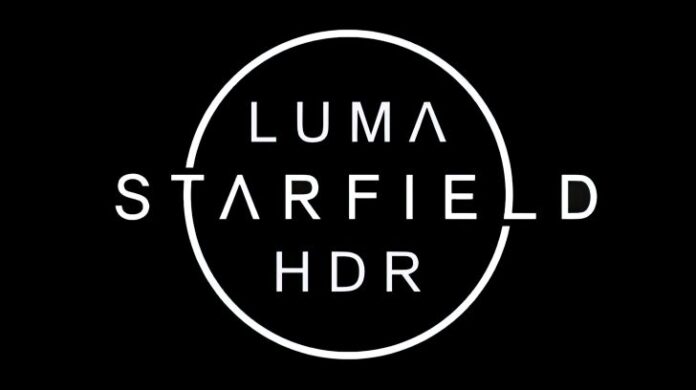
After a few weeks of development, a group of modders released the Starfield Luma Native HDR mod, which they reckon is the only true way to experience Bethesda's sci-fi roleplaying game in native HDR since all the other methods fail to deliver a proper High Dynamic Range presentation.
- The Xbox version appears to use an internal version of AutoHDR instead of a native implementation, so the output HDR image is merely extracted from the SDR one;
- On PC, Windows AutoHDR is limited to 8-bit output, interprets the game with the wrong gamma (sRGB instead of 2.2), makes the in-game user interface too bright, and can't exceed 1000 nits of peak brightness;
- Other PC methods like SpecialK or Pumbo's Advanced AutoHDR can go up to 16-bit output, but the game's tonemapping is still based on SDR, causing highlights to be clipped.
Thus, after the modding community successfully reverse-engineered the game's code, four rather famous modders joined forces to create Starfield Luma Native HDR. Filippo Tarpini, also known as Pumbo, is a Remedy developer known for his Control HDR mod, though he also worked on the HDR implementation of the upcoming Alan Wake 2. I had the chance to speak with him about this project.
Pumbo split his work between managing the various tasks across the whole team, working on the tonemapper, and rewriting the blending between the UI and game images.
Lilium, the author of the increasingly popular HDR analysis ReShade shaders, rewrote the shader behind image sharpening to ensure they would be compatible with HDR, helped with tonemapping, and made various code optimizations.
Ersh, a renowned modder who released popular mods for games like The Elder Scrolls V: Skyrim and Baldur's Gate 3, dealt with the CPU side, working on the .dll file that loads the shaders and adds the Starfield Luma Native HDR settings to the in-game menu.
Last but not least, ShortFuse, the author of Normalized LUTs, rewrote the mod's code inside Starfield's shaders so that the LUTs are analyzed and expanded at runtime with no need to replace any files. ShortFuse also implemented an improved film grain effect.
The mod's benefits aren't limited to HDR modes, anyway. As you can see in the comparison screenshots, even SDR shows major improvements in color accuracy and proper black rendition. Every enhancement is easily configurable from the settings menu.
Starfield Luma Native HDR supports two High Dynamic Range modes, HDR10 and scRGB. The latter, which is theoretically more accurate, cannot be used if you have installed the DLSS 3 (Frame Generation) mods due to a current limitation of NVIDIA's technology. Other than that, there shouldn't be any issues with other mods. It's even possible to use customized LUTs, though in that case, users should disable the LUTs Correction setting to avoid double correction.
Other notable features include:
- Increased buffers accuracy in SDR and HDR, which reduced banding all around (SDR is now 10bit instead of 8bit)
- Normalized LUTs (the grey/flat look is mostly gone, but the color tint is still there)
- Fixed bink fullscreen videos playing back with the wrong colors (BT.601 instead of BT.709) and made them use AutoHDR
- Improved the sharpening passes
- Improved film grain to be more realistic and nice to look at (rebalancing the grain size and strength on dark/bright colors)
- Fixed the game using very wrong gamma formulas
Tonemapping, post-processing, and color correction have been rewritten to adhere to more recent standards while offering the same level of performance.
Starfield Luma Native HDR offers two installation options: SFSE and ASI. The latter should be used by players who own the game on Microsoft Store/Game Pass since the Starfield Script Extender does not support that version.
You may drop the mod's content into the root folder of the Starfield installation or use a mod manager. Once installed, you will need to launch Starfield through the SFSE or ASI loader, depending on which version you're using. Should you wish to remove the mod, just delete all the files.
Starfield Luma Native HDR will go open source in the near future, allowing the modding community to further improve it. If you'd like to support the original authors, donations are available through the following links:
In other Starfield news, the game sold extremely well in the United States, while European sales data are a bit less stellar.
WccftechContinue reading/original-link]
















